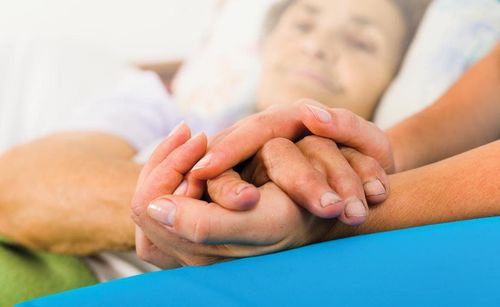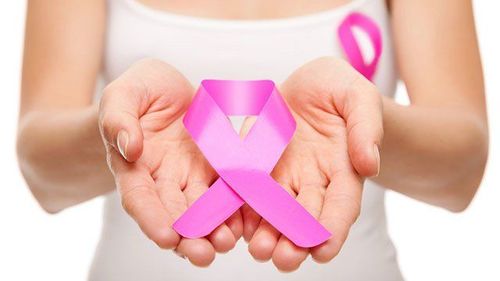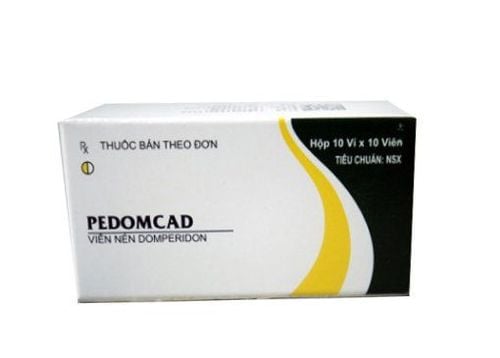This is an automatically translated article.
The article was written by Dr. BS Phan Nguyen Thanh Binh - Head of the Department of Nutrition - Dietetics, Department of Pediatrics - Neonatology, Vinmec Central Park International General Hospital1. Expression of anorexia
Do not feel hungry Eat quickly, eat less Refusing to eat favorite foods Absolutely do not want to eat
2. Consequences of anorexia
Weight loss, muscle atrophy, fat Nutritional deficiencies, malnutrition Fatigue, reduced mobility due to muscle loss (muscle atrophy, muscles do not have the strength to work)

Dehydration, electrolyte disturbances Immunocompromised, susceptible to infections Debilitated Decreased response to treatment Vulnerable to chemotherapy and radiotherapy side effects Reduced treatment time and survival
3. Causes of anorexia
Changes in metabolism, metabolism in an advanced cancer. Tumors of the organs of the digestive system or causing compression of the digestive tract Tumors of the organs in the abdomen cause irritation, swelling, pain... Ascites - accumulation of fluid in the abdomen creates feeling full quickly Unwanted side effects of drugs used in chemotherapy, immunotherapy, other drugs... can affect appetite such as: mouth ulcers, nausea, vomiting , mouth infection, dry mouth, difficulty swallowing, change in taste, constipation, diarrhea, pain, fatigue, stress and anxiety... Radiation therapy, surgery on digestive organs such as stomach, intestine..
4. Remedies for anorexia
Identify the cause of anorexia and address the cause. Good treatment of problems such as nausea, vomiting, mouth sores, difficulty swallowing, dry mouth or depression... to help improve appetite.

5. Building a scientific diet
No need to eat according to meals, and no need to limit the number of meals: can eat many times a day, eat whenever craving and feeling hungry.
Determine what time of day you are usually hungry and eat at those times, you can set the alarm clock to remind you to eat.
Keep your favorite foods, snacks available around (like on the dining table, desk and even in the bedroom) so you can eat them at any time.
Eat nutritious snacks that are high in calories and protein. You can choose from dried fruits, nutritious nuts, yogurt, cheese, eggs, milk, ice cream, cereals, puddings...
Eat whatever you like without worrying about the amount. cholesterol, salt ... because when you eat too little, even if the content of these substances in the food is high, it will not exceed the total allowed intake in a day.
Do not drink water/juice/soup right before and during meals to increase the amount to eat.
Should do light exercise 30 minutes before eating to stimulate appetite and increase hunger.
Choose a space to create a feeling of enjoyment and comfort when eating, should eat with family or friends, ...
6. Type of food
Eat a variety of 4 groups, meat, fish, beans, vegetables, fruits, milk and dairy products,... Increase energy density of food/drink by adding fat (MCT) , Coffeemate, oils rich in EPA, DHA) and/or complex sugar Maltodextrin, in combination with high-energy nutritional products (1-2kcal/1ml). Choose immune-boosting foods with antioxidant effects such as: Foods rich in vitamin C: oranges, tangerines, grapefruits, strawberries, cherries, berries, broccoli... Foods rich in beta carotene: leafy vegetables green vegetables such as spinach, spinach, and other yellow-orange fruits or tubers such as papaya, carrots, pumpkin, sweet potato squash... Foods rich in vitamin E: nuts such as sunflower seeds or sunflower oil poplar, peanuts, cashews, barley seeds...

7. Nutritional support interventions
7.1 Omega 3 drugs or supplements: some studies have proven that with a daily dose of 1500mg DHA and EPA in fish oil, either in pharmaceuticals or in supplement form such as milk for cancer patients for 4-6 months to improve anorexia and prevent cachexia. Glutamine: There is a lot of evidence that 7-10g of glutamine per day helps prevent as well as improve dry mouth ulcers, diarrhea as well as increase gastrointestinal absorption in patients with chemotherapy and radiation. 7.2 Drug treatment If the anorexia does not improve and the patient exhibits weight loss, the treating doctor may consider prescribing some drugs to improve anorexia such as Megestrol acetate, Medroxyprogesterone (those that help improve appetite). forms of the hormone progesterone, steroids (relieves pain), Metoclopramide (increases bowel movements that help push food out of the stomach and can prevent feeling full before eating enough), Dronabinol (to treat nausea and vomiting caused by The drug is only used for a short time due to the risk of side effects
7.3 Active nutritional intervention When the patient has the following condition:
Weight loss > 5% in a month Almost nothing to eat more than 7 days Eating less than half of the daily intake for more than 10 days The patient needs to be taken to the hospital to be considered for supportive nutrition measures (nasogastric feeding or parenteral nutrition).
Please dial HOTLINE for more information or register for an appointment HERE. Download MyVinmec app to make appointments faster and to manage your bookings easily.














